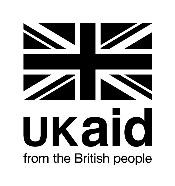The ASSAR project aims to improve understanding of climate change in semi-arid areas across Africa and Asia, preparing the communities and governments for the potential impacts of climate change.
The ASSAR Consortium will be working in the crucial climate change “hot-spot” of Semi-arid regions, characterised by intrinsic biophysical and socio-economic vulnerability to a range of stresses, and severe projected changes in climate over the coming decades. The research will take place in four semi-arid regions – Southern Africa, West Africa, East Africa and South Asia –and will take a multi-scalar approach, looking at the regional, national and local level and exploring how vulnerability, adaptation and the political-economic factors at play at these different levels interact and affect each other.
More specifically, the ASSAR research aims to: understand how climate change might interact with other factors to affect the poor and vulnerable in semi-arid areas; develop a better understanding of what works and doesn’t in building adaptive responses to climate change; identify the scientific, technical, social and political-economic barriers and enablers for effective adaptation, from local to national scales.
Time frames: 5 year project, from March 2014 to March 2019
Funder: The International Development Research Centre (IDRC) and UK’s Department for International Development (DfID) (through the Collaborative Adaptation Research Initiative in Africa and Asia (CARIAA))
Partners: The African Climate and Development Initiative (ACDI) is the lead at the University of Cape Town (UCT), and UCT is one out of five lead organisations, together with: START Washington/Ghana; University of East Anglia; Indian Institute for Human Settlement; and Oxfam UK. Collaborators include University of Botswana, University of Namibia, Reos Partners, the INTASAVE partnership, the Red Cross/Crescent Climate Centre, University of Ghana, ICRISAT, African Wildlife Foundation, University of Addis Ababa, Watershed Organisation Trust, Indian Institute for Tropical Meteorology and Ashoka Trust for Ecology and the Environment.
For further details: Contact Dr Modathir Abdalla Hassan Zaroug

